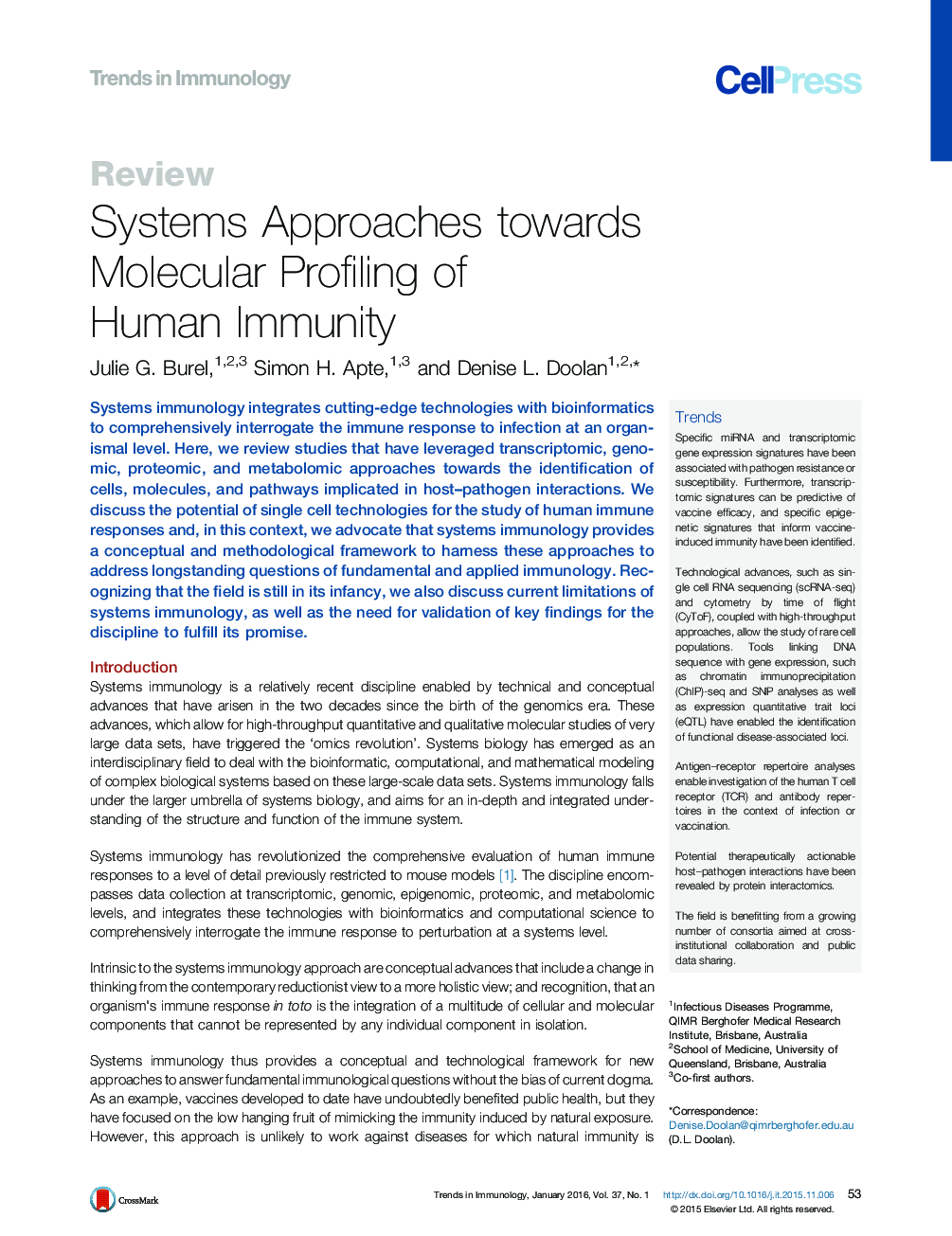| Article ID | Journal | Published Year | Pages | File Type |
|---|---|---|---|---|
| 4359705 | Trends in Immunology | 2016 | 15 Pages |
Systems immunology integrates cutting-edge technologies with bioinformatics to comprehensively interrogate the immune response to infection at an organismal level. Here, we review studies that have leveraged transcriptomic, genomic, proteomic, and metabolomic approaches towards the identification of cells, molecules, and pathways implicated in host–pathogen interactions. We discuss the potential of single cell technologies for the study of human immune responses and, in this context, we advocate that systems immunology provides a conceptual and methodological framework to harness these approaches to address longstanding questions of fundamental and applied immunology. Recognizing that the field is still in its infancy, we also discuss current limitations of systems immunology, as well as the need for validation of key findings for the discipline to fulfill its promise.
TrendsSpecific miRNA and transcriptomic gene expression signatures have been associated with pathogen resistance or susceptibility. Furthermore, transcriptomic signatures can be predictive of vaccine efficacy, and specific epigenetic signatures that inform vaccine-induced immunity have been identified.Technological advances, such as single cell RNA sequencing (scRNA-seq) and cytometry by time of flight (CyToF), coupled with high-throughput approaches, allow the study of rare cell populations. Tools linking DNA sequence with gene expression, such as chromatin immunoprecipitation (ChIP)-seq and SNP analyses as well as expression quantitative trait loci (eQTL) have enabled the identification of functional disease-associated loci.Antigen–receptor repertoire analyses enable investigation of the human T cell receptor (TCR) and antibody repertoires in the context of infection or vaccination.Potential therapeutically actionable host–pathogen interactions have been revealed by protein interactomics.The field is benefitting from a growing number of consortia aimed at cross-institutional collaboration and public data sharing.
